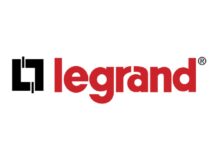AmSurg Corp proposed a $5.3 billion merger with TeamHealth Holdings Inc as it looks to add heft to its business that provides doctors to hospitals and other healthcare services.
AmSurg, which revealed on Tuesday that private merger talks with TeamHealth fell through in September, said it had gone public with the offer to persuade TeamHealth "to come back to the table".
TeamHealth, however, swiftly rejected the offer, saying it undervalued the company.
The cash-and-stock offer of $71.47 per share represents a premium of 36 percent to TeamHealth's closing price on Monday.
AmSurg expects that synergies from the combination could eventually be worth an additional $9 to $10 per share for stockholders, AmSurg CEO Christopher Holden said in an interview with Reuters.
TeamHealth shares were up about 14 percent at $60, while AmSurg was down 4 percent.
Some analysts said investors were worried that the high stock component in the offer could scuttle the deal.
"The initial offer is 22 percent cash and 78 percent stock…the comparatively high stock component makes the chances of a final deal lower than if the deal had a greater cash component," Wells Fargo analyst Gary Lieberman said in a note.
A deal would make the combination a leading provider of medical staff such as radiologists, anesthesiologists and physicians for ambulatory surgery and primary care, AmSurg said.
The companies have a combined network of 1,200 healthcare facilities and about 20,000 clinicians. The combined company, which would assume the TeamHealth name, would be led by AmSurg's Holden.
AmSurg also said it would back TeamHealth's acquisition of IPC Healthcare Inc for $1.4 billion.
AmSurg, which is known more for its ambulatory surgery centers, forayed into the outsourced physician market with the acquisition of Sheridan Healthcare Inc in 2014.
More than half the company's total revenue in the quarter ended June came from the physician services business.
The total enterprise value of the deal is $7.8 billion, AmSurg said.
The U.S. healthcare sector is rapidly consolidating as pharmaceutical companies, drug retailers, health insurers and hospital systems are looking to bulk up to better negotiate with each other. Health insurers, in particular, want to be able to negotiate better prices with doctors and hospitals.
"Physicians are seeking a platform that offers them a voice in this rapidly consolidating market," Holden said on a conference call with analysts.
In the interview with Reuters, Holden said AmSurg was confident that its proposed combination would not raise the ire of anti-trust regulators. He noted that the marketplace for its services was highly fragmented and there was minimal overlap between AmSurg and TeamHealth.
Guggenheim Securities and J.P. Morgan Securities LLC are financial advisers and Bass, Berry & Sims PLC is legal counsel to AmSurg. Citi is serving as financial advisor to TeamHealth, and Simpson Thacher & Bartlett LLP is serving as its legal counsel.
















